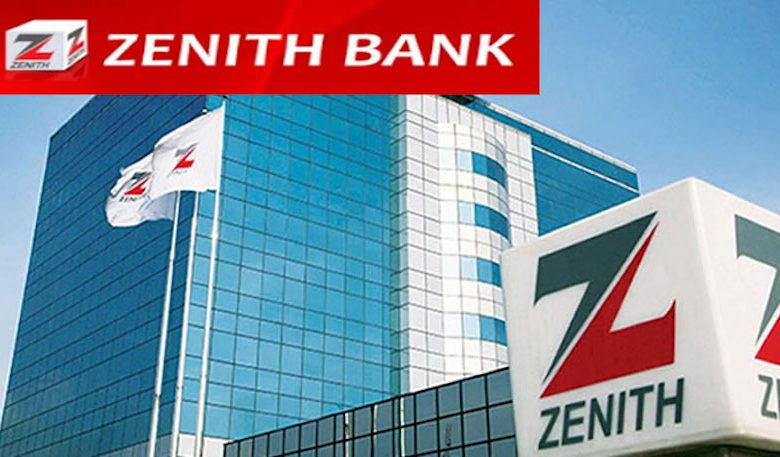
Zenith Bank’s financial results demonstrate the strength and resilience of the bank’s business model. One of the key highlights of the bank’s performance is its strong financial performance, with gross earnings growing by 16.3% YoY to N3.4 trillion. This growth was driven by a 40.8% increase in interest income, which is a testament to the bank’s ability to generate revenue from its core lending activities. Additionally, the bank’s healthy Net Interest Margin (NIM) of 12.8% indicates a strong spread between interest income and expense, allowing the bank to maintain its profitability.
The bank’s diversified revenue streams are another key strength, with revenue generated from interest income, non-interest income, and fees and commissions. This diversification helps to reduce the bank’s dependence on any one revenue stream and provides a stable source of income. Furthermore, the bank’s commitment to maintaining a strong capital base is evident in its recapitalization efforts, which demonstrate its ability to adapt to changing regulatory requirements and maintain its financial stability. Overall, Zenith Bank’s strengths position it well to navigate the challenges of the banking industry and continue to deliver value to its shareholders.
- Strong Financial Performance: Zenith Bank’s gross earnings grew by 16.3% YoY to N3.4 trillion, driven by a 40.8% increase in interest income.
- Healthy Net Interest Margin: The bank’s NIM stood at 12.8%, up from 10.4% in 9M’24, indicating a strong spread between interest income and expense.
- Diversified Revenue Streams: Zenith Bank’s revenue streams are diversified across interest income, non-interest income, and fees and commissions.
- Strong Capital Position: The bank’s capital adequacy ratio is not explicitly stated, but its recapitalization efforts demonstrate its commitment to maintaining a strong capital base.
Challenges to be Addressed
Zenith Bank’s financial results reveal some weaknesses that need to be addressed in order to maintain its financial stability and profitability. One of the major concerns is the decline in profitability, with PBT and PAT declining by 8.5% and 7.6% YoY, respectively. This decline is attributed to increased loan impairment charges and a decline in non-interest revenue. The bank’s loan impairment charges have increased significantly, with a net impairment charge of N781.5 billion in 9M’25. This suggests that the bank’s asset quality may be deteriorating, which could have a negative impact on its financial performance.
Another weakness that needs to be addressed is the bank’s dependence on interest income, which accounts for a significant portion of its revenue. This dependence makes the bank vulnerable to fluctuations in interest rates, which could impact its profitability. Furthermore, the bank’s cost of risk has increased to 10.8%, up from 5.6% in 9M’24, indicating a higher risk profile. This suggests that the bank needs to improve its risk management practices and diversify its revenue streams to reduce its dependence on interest income and mitigate potential risks. By addressing these weaknesses, Zenith Bank can improve its financial performance and maintain its stability in the banking industry
- Decline in Profitability: Zenith Bank’s PBT and PAT declined by 8.5% and 7.6% YoY, respectively, due to increased loan impairment charges and a decline in non-interest revenue.
- High Loan Impairment Charges: The bank’s loan impairment charges increased significantly, with a net impairment charge of N781.5 billion in 9M’25.
- Dependence on Interest Income: Zenith Bank’s revenue is heavily dependent on interest income, which may be vulnerable to fluctuations in interest rates.
- High Cost of Risk: The bank’s cost of risk stood at 10.8%, up from 5.6% in 9M’24, indicating a higher risk profile.
Zenith Bank’s Opportunities: A Path to Growth and Expansion
The Nigerian banking industry is experiencing significant growth, driven by increasing demand for banking services and digital payments. This trend presents a major opportunity for Zenith Bank to expand its customer base and increase its revenue. With its strong brand reputation and extensive network, the bank is well-positioned to take advantage of this growing demand and increase its market share. Furthermore, Zenith Bank has opportunities to expand into new markets, both within Nigeria and across Africa. This could involve opening new branches, partnering with local businesses, or acquiring existing banks in target markets.
Digital banking is another key opportunity for Zenith Bank. By leveraging digital banking, the bank can increase revenue, reduce costs, and improve customer experience. Digital banking allows banks to provide customers with convenient and accessible banking services, reducing the need for physical branches and enabling customers to manage their accounts and make transactions remotely. Zenith Bank can invest in digital banking infrastructure, such as mobile banking apps and online banking platforms, to enhance its customers’ experience and improve its operational efficiency. By seizing these opportunities, Zenith Bank can drive growth, expansion, and increased profitability
- Growing Demand for Banking Services: The Nigerian banking industry is growing, driven by increasing demand for banking services and digital payments.
- Expansion into New Markets: Zenith Bank has opportunities to expand into new markets, both within Nigeria and across Africa.
- Digital Banking: The bank can leverage digital banking to increase revenue, reduce costs, and improve customer experience.
Challenges to be Mitigated
Zenith Bank operates in a complex and dynamic environment, where various threats could impact its financial performance and stability. One of the significant threats facing the bank is economic uncertainty in Nigeria. The country’s economy is subject to various challenges, including fluctuations in oil prices, currency volatility, and infrastructure deficiencies. These economic uncertainties could impact the bank’s financial performance, particularly if they lead to a decline in economic activity, reduced demand for credit, or increased loan defaults. Additionally, changes in regulatory requirements pose another threat to the bank’s operations and financial performance. Zenith Bank must comply with various regulations, and any changes to these regulations could impact its operations, capital requirements, or profitability.
The Nigerian banking industry is also highly competitive, with several banks vying for market share. This competition could impact Zenith Bank’s ability to attract and retain customers, and maintain its market share. Furthermore, the bank’s high loan impairment charges demonstrate the credit risk it faces, which could impact its financial performance. Credit risk arises from the possibility of borrowers defaulting on their loans, which could lead to significant losses for the bank. To mitigate these threats, Zenith Bank needs to maintain a robust risk management framework, diversify its revenue streams, and invest in initiatives that enhance its competitiveness and customer loyalty. By proactively managing these threats, the bank can minimize their impact and maintain its financial stability and performance.
- Economic Uncertainty: The Nigerian economy is subject to uncertainty, which may impact the bank’s financial performance.
- Regulatory Risks: Changes in regulatory requirements may impact Zenith Bank’s operations and financial performance.
- Competition: The Nigerian banking industry is highly competitive, with several banks vying for market share.
- Credit Risk: The bank’s high loan impairment charges demonstrate the credit risk it faces, which may impact its financial performance. Zenith Bank’s SWOT analysis presents a nuanced picture of a financial institution poised for growth, yet navigating a complex web of challenges. While its strong financial performance and diversified revenue streams are undeniable strengths, the bank must address its decline in profitability and high loan impairment charges to maintain its momentum. By capitalizing on opportunities in digital banking and new markets, and proactively managing threats from economic uncertainty and regulatory risks, Zenith Bank can chart a path to sustained success and solidify its position as a leader in the Nigerian banking industry.




